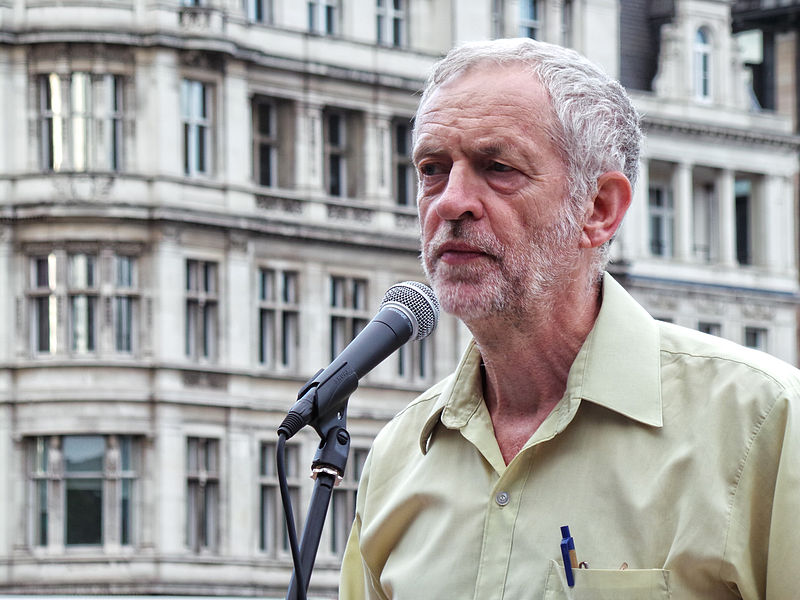Britain’s decision to reaffirm its commitment to the Trident program ruffled a few feathers in the House of Commons when the motion was deliberated among MPs on July 18, 2016. With a vote of 472 to 111 in favour, the program will continue to operate at a projected cost of $40 billion pounds, $31 billion in operational expenses to replace the worn out submarines and $10 billion being set aside as a contingency fee.
The controversial revision placed some of the UK’s political factions into unique positions, pitting party ideologies against those of individual MPs. For instance, despite strong opposition against nuclear weapons, the Labour party felt obligated under its national policy to agree to the renewal of Trident, much to the dismay of Jeremy Corbyn, leader of the party and strong proponent of the Campaign for Nuclear Disarmament (CND). Speaking against his party he warned that, “We are debating not a nuclear deterrent but our continued possession of weapons of mass destruction. We are talking about 40 warheads, each one with a capacity to kill more than one million people.”
The Conservative government under the leadership of incumbent Prime Minister Theresa May, remains adamant about the necessity for the Trident program. In her debut at Prime Minister’s Questions (PMQs) in the House of Commons, May lacerated ‘unscrupulous [Corbyn]’ thanking his 140 MPs for defying Corbyn’s misguided approach to the nuclear deterrent.
During the PMQs, May argued the need for Britain to have a monopoly on the authorization of unilateral force as an ‘insurance policy’ in order to respond to threats or attacks. She cynically added that the reality of enforcement mechanisms to prevent nuclear proliferation is simply an idealistic, delusional one, implying that there is no evidence to suggest hostile actors wouldn’t use nuclear weapons for first-strike capabilities given the chance to protect their interests.
Scotland, on the other hand is opposed renewing the program. And it’s not surprising that they largely comprised the opposition vote. The Scottish Labour party raised concerns about Westminster’s current stance on pro-nuclear defence policy, citing it as “immoral, obscene and redundant”, one that will invite nuclear proliferation. Westminster leader for the Scottish National Party (SNP), Angus Robertson, added that, “it would be both morally and economically indefensible for the UK government to commit to spending hundreds of billions of pounds on weapons of mass destruction- even more so at a time when they are cutting funding for public services.”
The SNP and the Liberal Democrats stood by their conviction that submarines are an archaic relic from the era of the Cold War that are no longer tenable in today’s post-Cold War world order, particularly as the majority of sovereign states today are ‘nuclear-free.’ Rather, ‘expensive and unnecessary’ money needed to replace the four Trident submarines should be appropriated towards the mitigation of more contemporary and pressing security issues, such as terrorism and cyber warfare.
At its annual conference held in Perth, Scotland, the Scottish Labour party discussed the impact Trident’s renewal would have on defence jobs at submarine bases in Faslane, located on the edge of Clyde and Rosyth dockyards near Edinburgh. While the Labour Party has indicated it would not renew Trident if they were in power, party elites still lack a plan on how it would replace the 13,000 jobs at the Navy facilities in the surrounding Dumbarton area.
Gary Smith, the acting Scottish regional secretary for the General, Municipal, Boilermakers and Allied (GMB) Trade Union, is equally concerned for the survival of thousands of defense jobs. In Smith’s view, the problem lies with conference delegates who are discontent that Scotland is not allowed to control its own national defense policy, a task that is specifically reserved for Westminster. Smith argued that the level of selfishness makes the party blameworthy of “pie-in-the-sky jobs.” and that replacing thousands of lost jobs with a defence diversification agency is one that would result in serious problems for the Dumbarton region.
Although Scotland is trying to muddy the waters, John Spellar, former defence minister under Tony Blair and shadow foreign minister under Ed Miliband, retorts that the uproar is of no importance to the UK leadership, arguably proven by the majority vote to overlook Scotland’s complaints and proceed with the renewal.
The antagonistic political divide highlights internal fragmentation among the UK’s political parties, which has recently been exacerbated by Brexit. Feuds between Scotland and the remainder of the UK’s stances on defense policy coupled with internal parliamentary disarray among Labour, Liberal Democrats, and Conservatives can set a dangerous precedent for procurement, particularly if policies concern nuclear strike capabilities that can unleash deadly repercussions if not dealt with in a calm, calculated, and level-headed manner. It is evident the central clash between Scotland and the rest of the UK is only one of several conflict hotspots that will require careful attention, especially as the Trident renewal moves forward.
The project, officially approved by a majority in the House of Commons on July 18, 2016 will cost approximately 40 billion pounds and will service over 40 years.
Photo: Jeremy Corbyn, leader of the UK’s Labour Party (2015), by Garry Knight via Wikimedia Commons. Licensed under CC BY 2.0.
Disclaimer: Any views or opinions expressed in articles are solely those of the authors and do not necessarily represent the views of the NATO Association of Canada.




